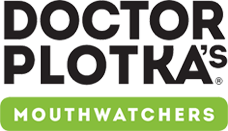
Nearly every parent struggles with getting their kids to brush their teeth. Establishing proper dental habits is vitally important to ensuring a lifetime of healthy teeth and gums. While the focus is almost always on frequency and duration of tooth brushing, as well as the type of toothpaste being used, there is far less attention put on the cleanliness of the toothbrush. In fact, many parents would be downright shocked to learn that visibly clean toothbrushes are commonly contaminated with potentially pathogenic organisms.
Preventing the spread of germs with hand sanitizer has become commonplace in schools, hospitals, grocery stores and homes. Yet, few pay attention to the germs that grow on toothbrushes. The mouth harbors hundreds of different types of microorganisms. These are transferred to toothbrushes and can grow over time. Although the body is usually able to defend itself against infections caused by these germs, there is the possibility that bacterial growth, particularly of yeast and mold, on toothbrushes can potentially lead to both oral and systemic health issues. So, how can you and your kids best care for your toothbrushes? Here are some basic guidelines to follow:
Rinse Toothbrushes Thoroughly
Toothbrushes should be rinsed well with tap water after each brushing and stored in an upright position. Make sure that toothbrushes aren't touching to avoid cross-contamination.
Don't Share Toothbrushes
Kids who share toothbrushes also share microorganisms that can increase the risk of transmission of infections. It's very important to stress the importance of using only your own toothbrush.
Do Not Store Toothbrushes in Closed Containers
Damp environments, such as an enclosed toothbrush container, do not enable toothbrushes to air out and dry. This can become a prime breeding ground for bacteria and other pathogens to grow.
Replace Toothbrushes Regularly
Toothbrushes can wear out and become frayed. They can also continue to collect bacteria, even after thorough cleaning. Replacing brushes every three to four months or after an illness, like cold or flu, is a good practice that may reduce reinfection.
Rinse before Brushing
There is some evidence that rinsing with an antibacterial mouthwash before brushing may decrease the buildup of bacteria on toothbrushes. Likewise, soaking toothbrushes in an antibacterial rinse may also be beneficial in decreasing the level of bacterial on a toothbrush.
Toothbrush care should be considered an important part of proactive dental hygiene and can be taught at an early age to promote good lifelong habits. By giving kids guidelines on how to care for their toothbrushes, as well as their teeth and gums, you may be able to support their overall good health throughout their life.
Written by Dr. Jack Gruber, DDS for The Healthy Moms Magazine and legally licensed through the Matcha publisher network. Please direct all licensing questions to legal@getmatcha.com.

